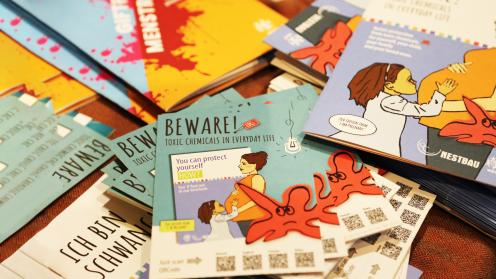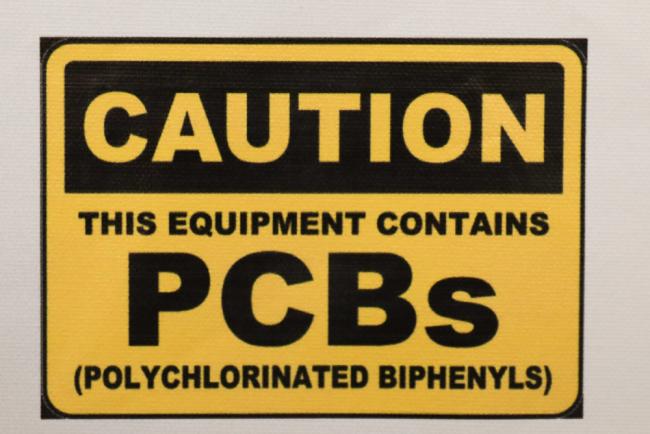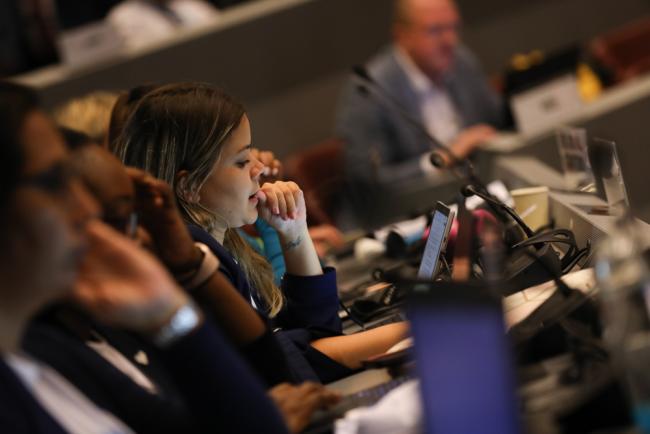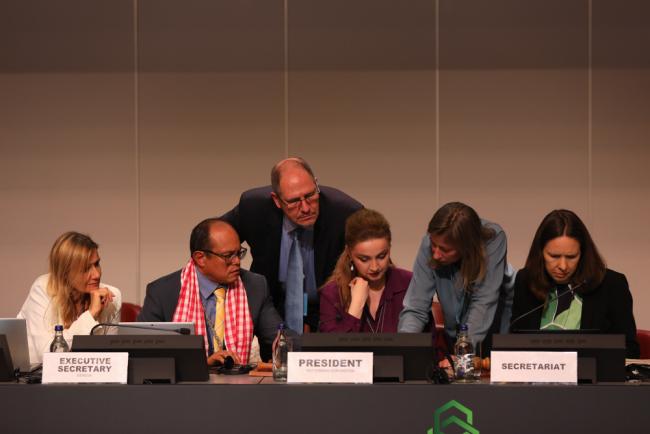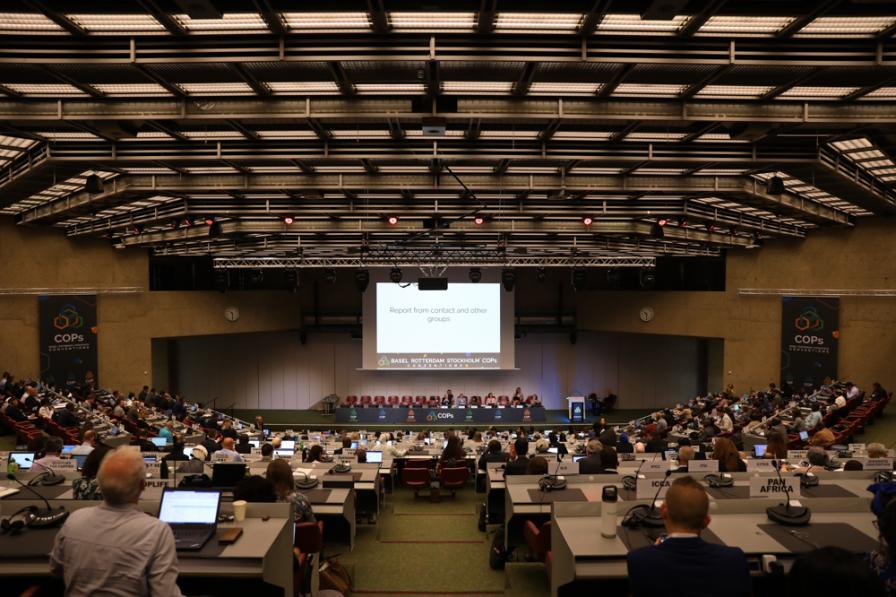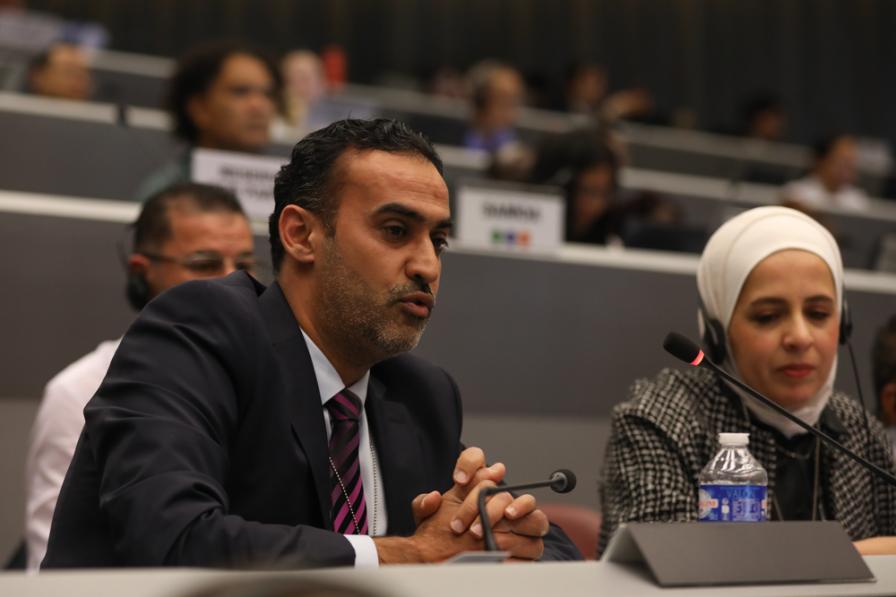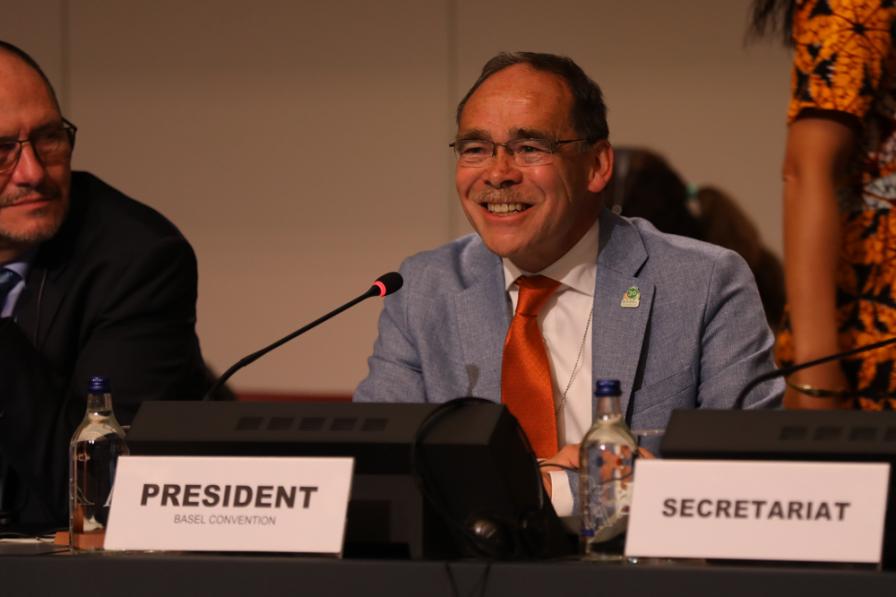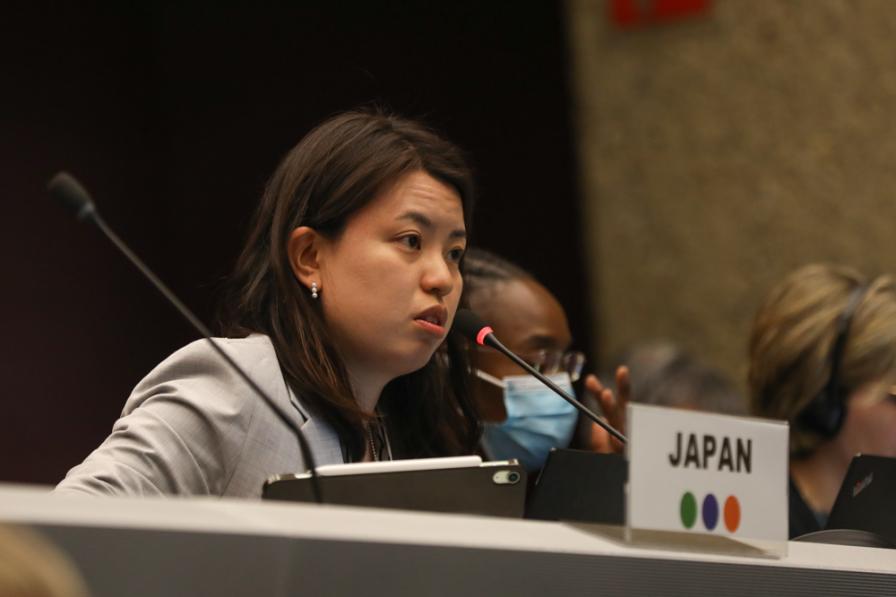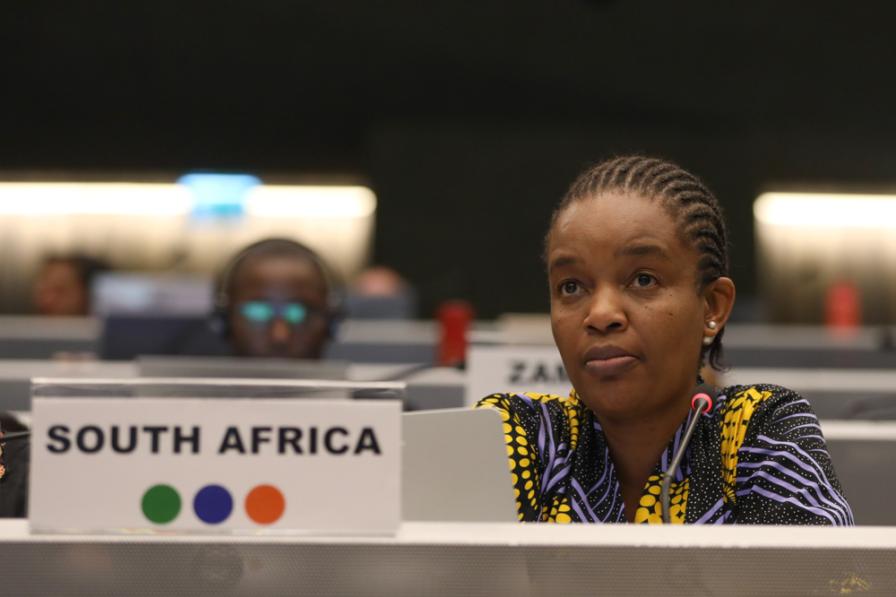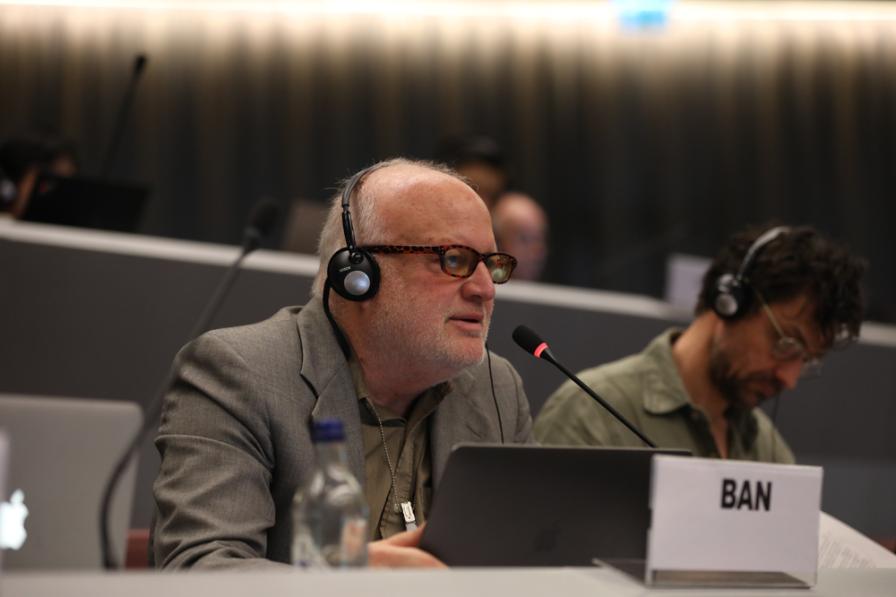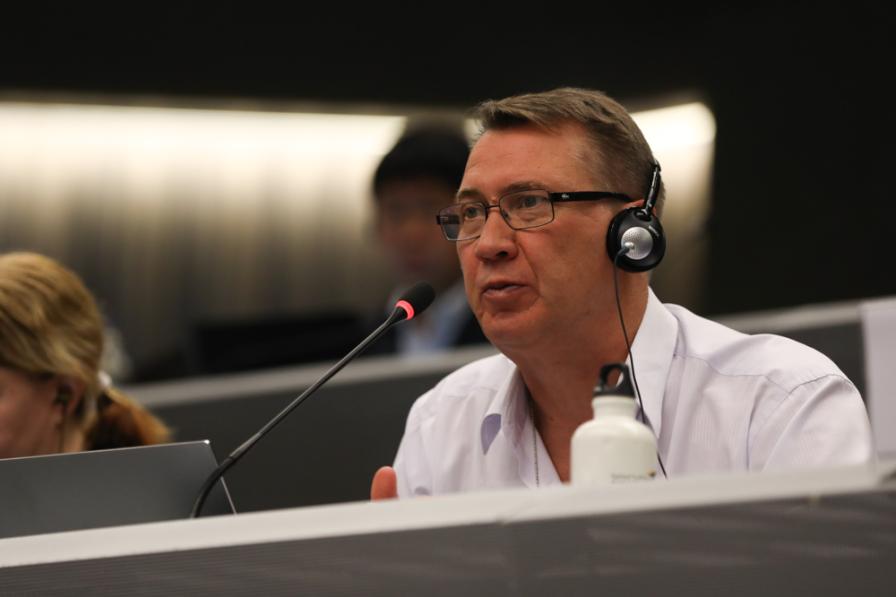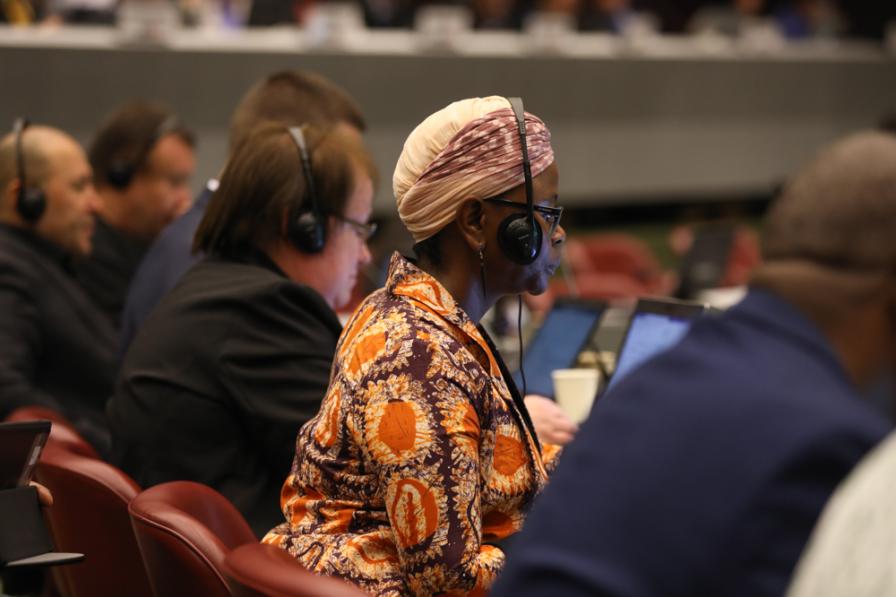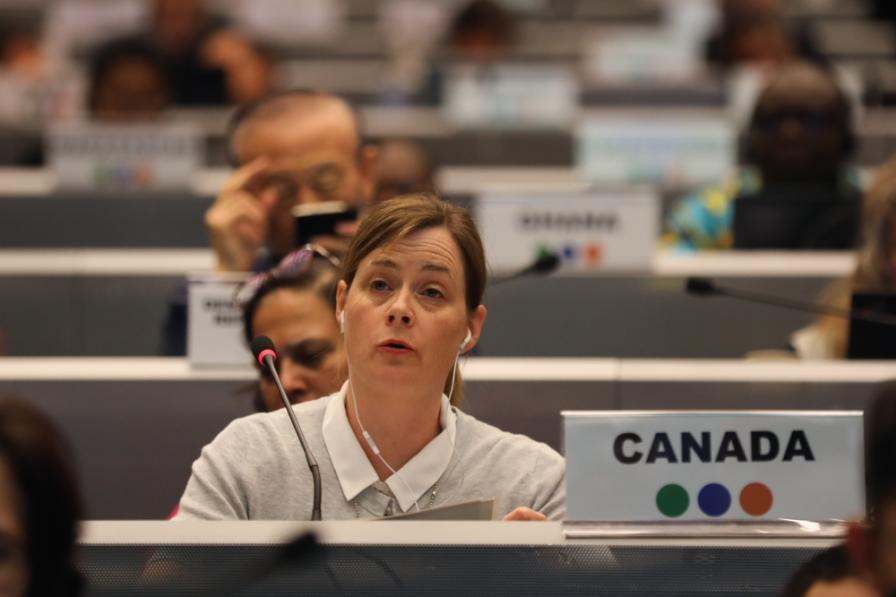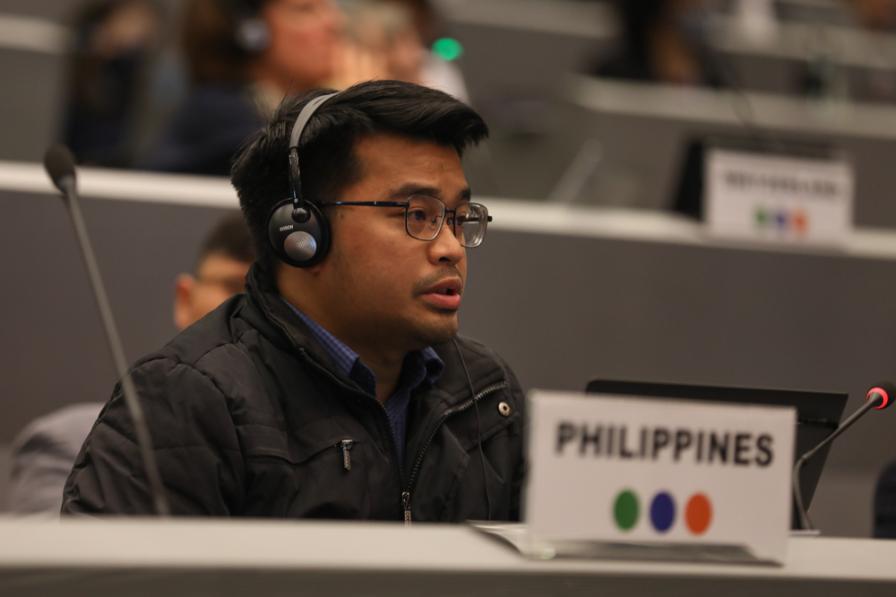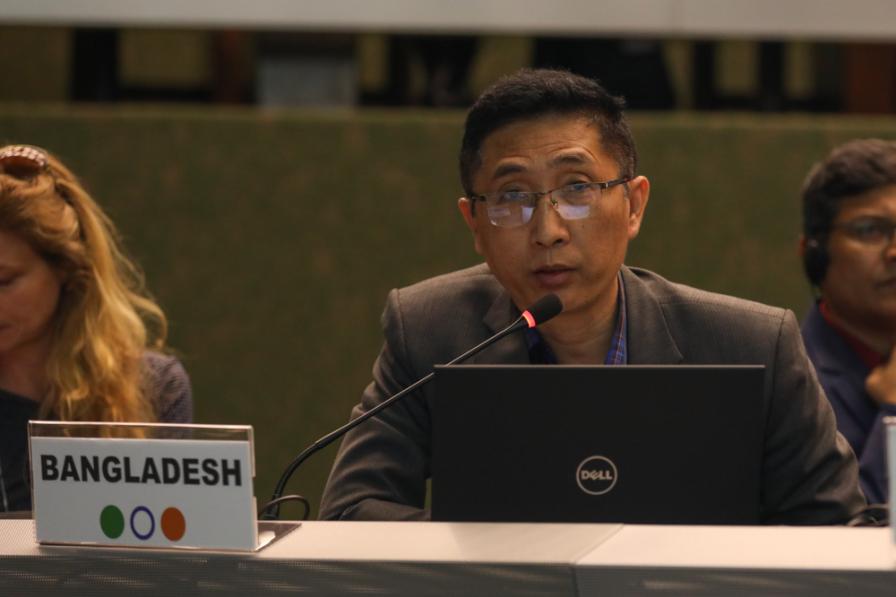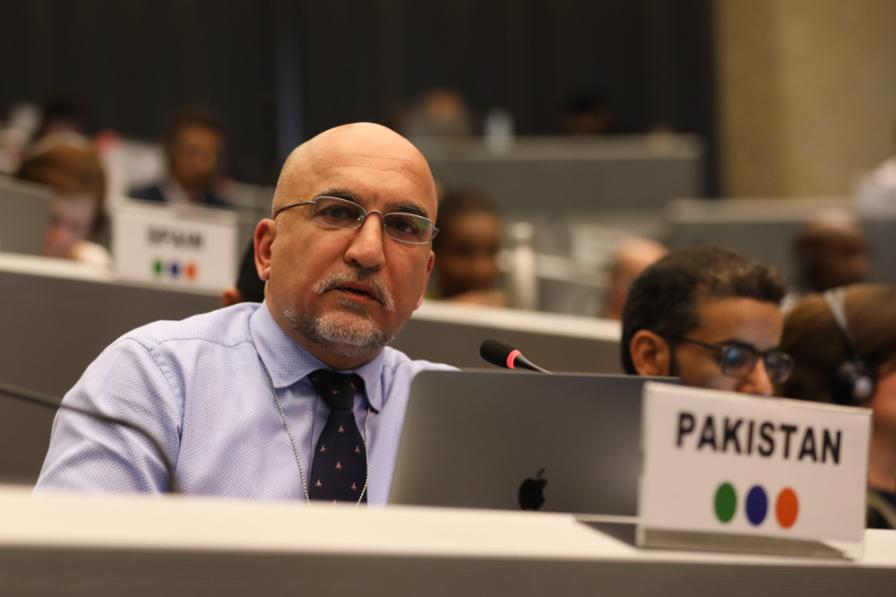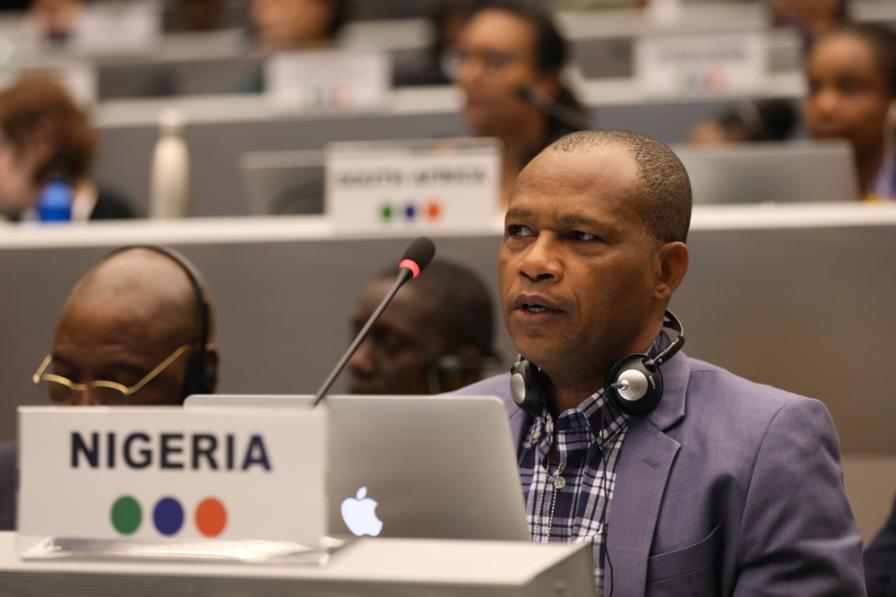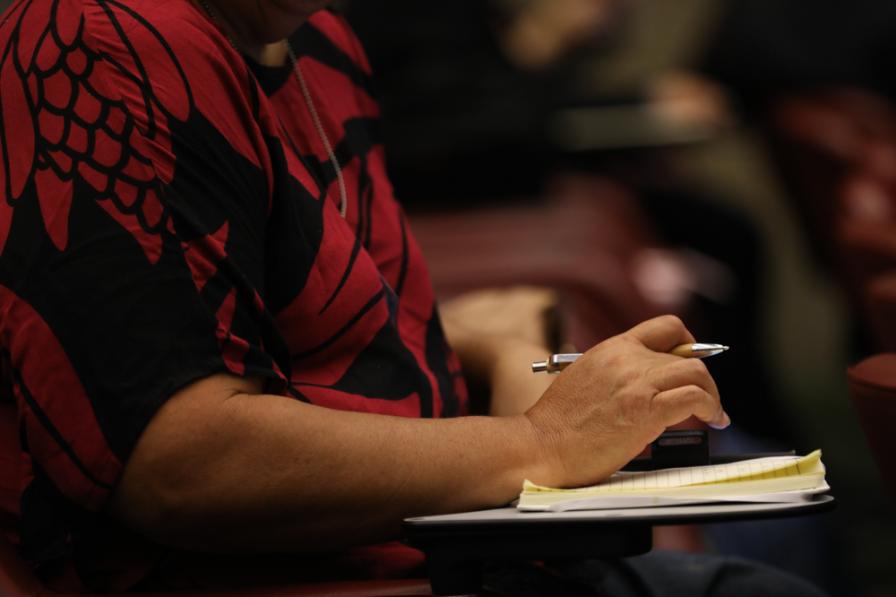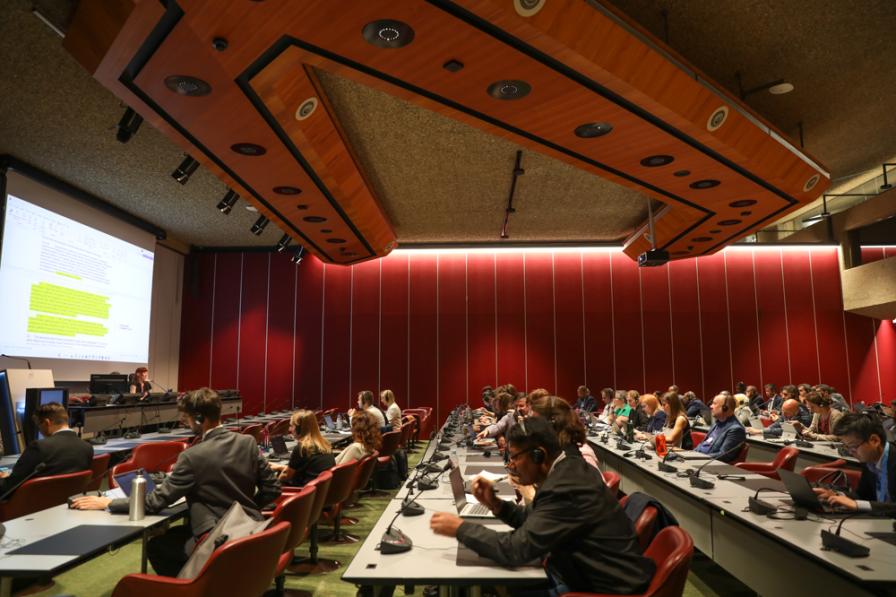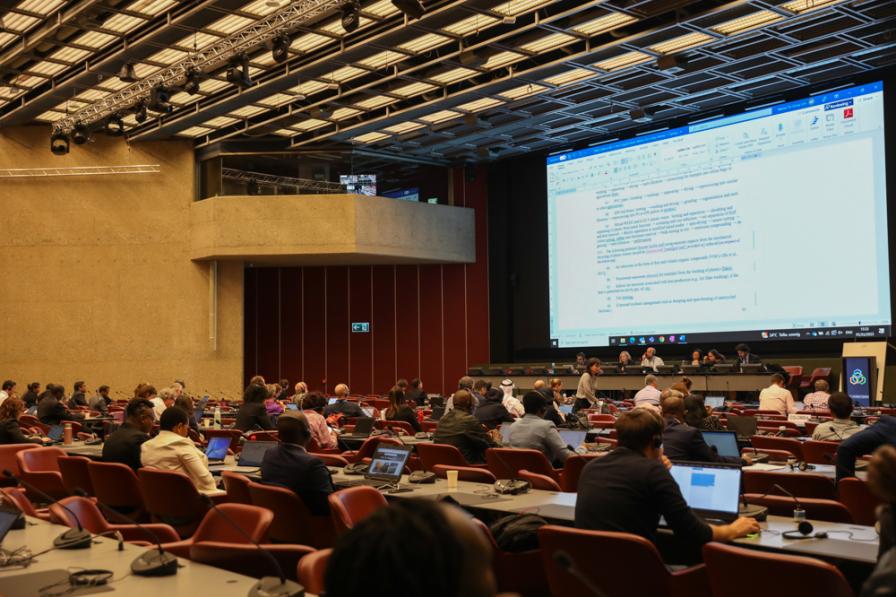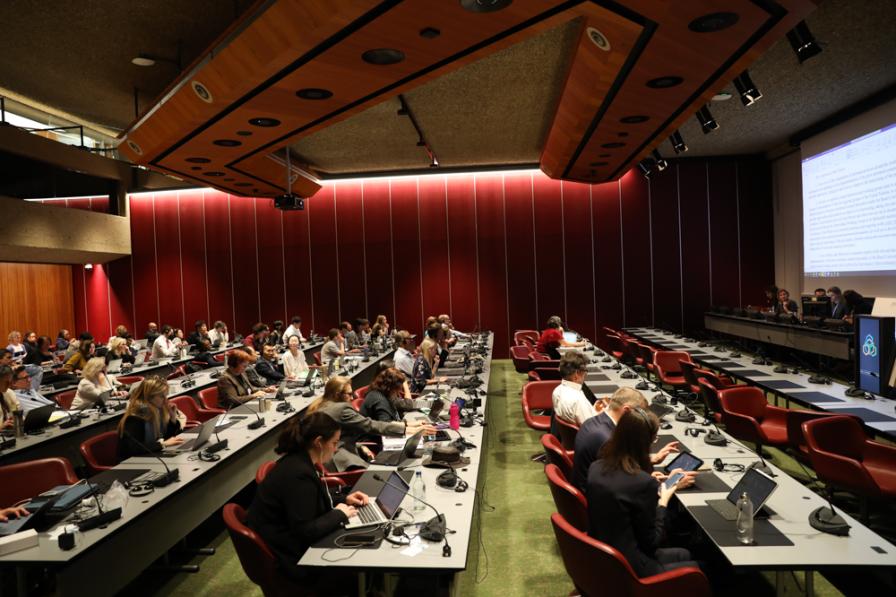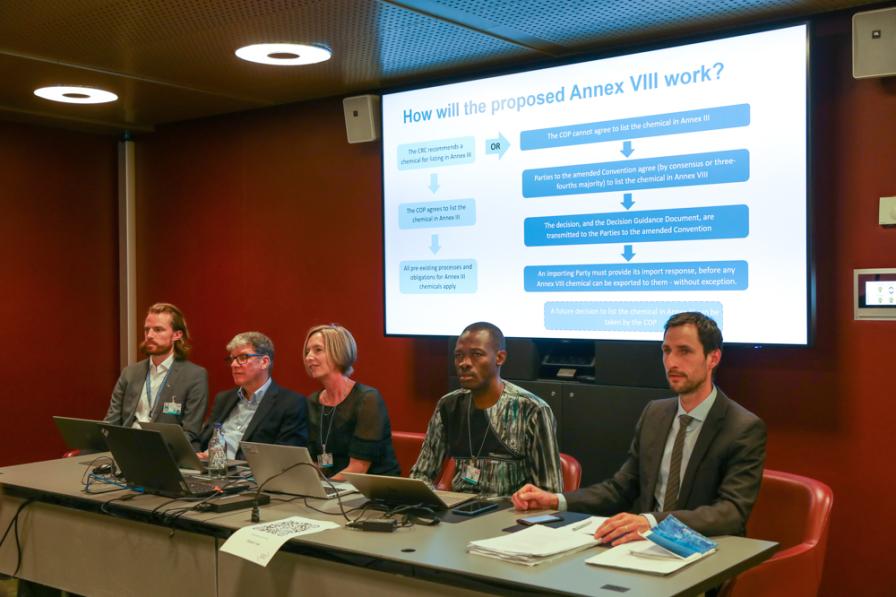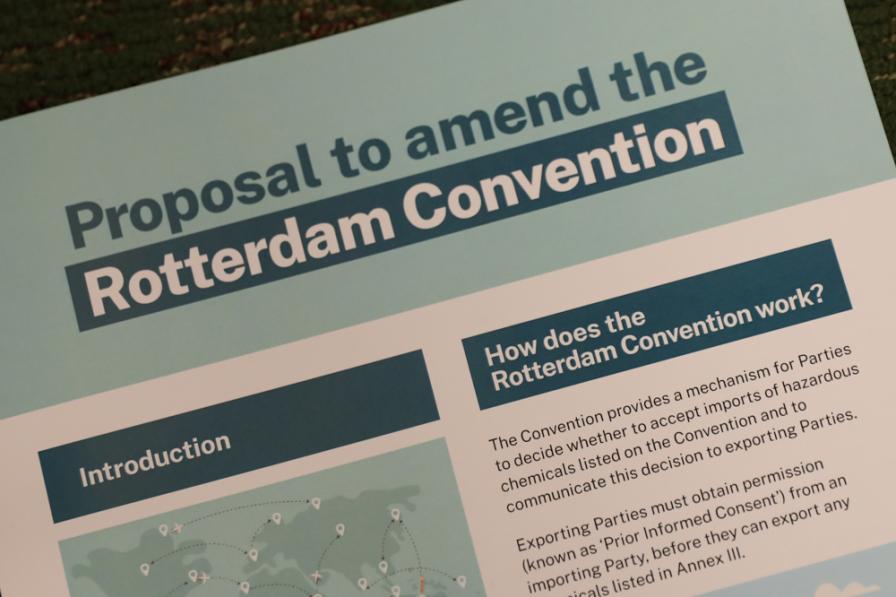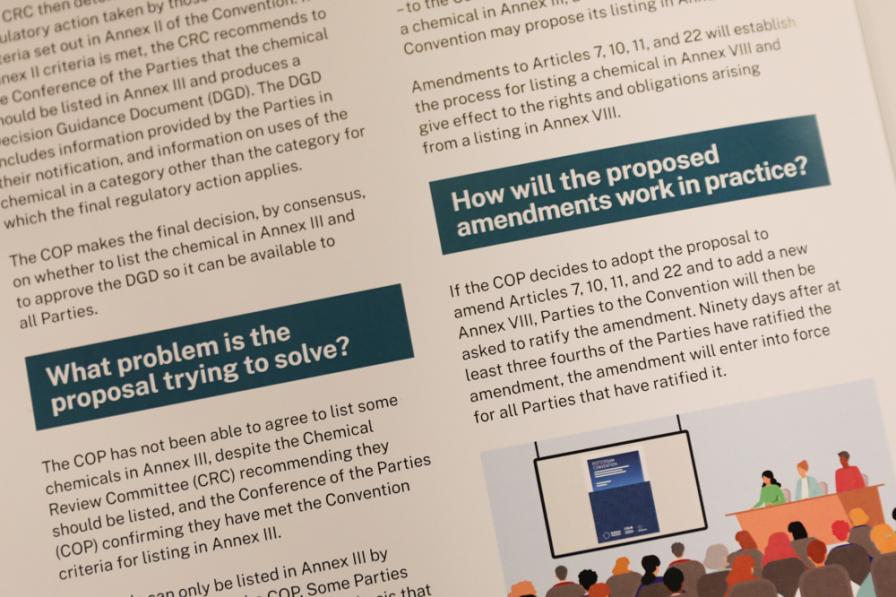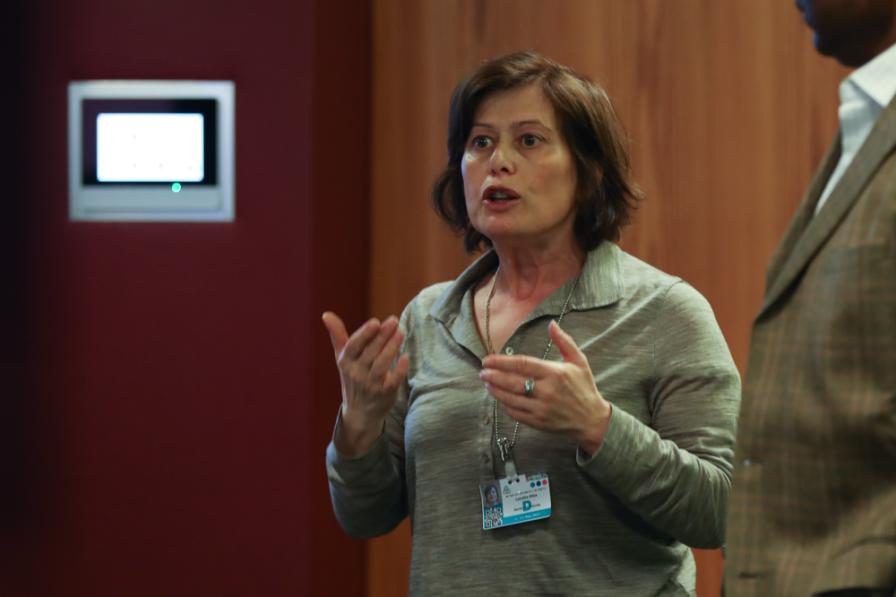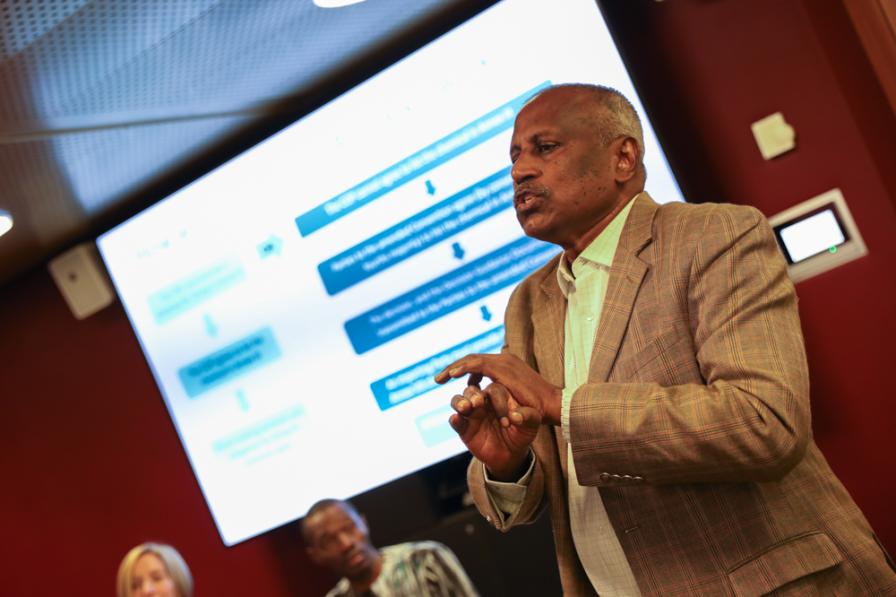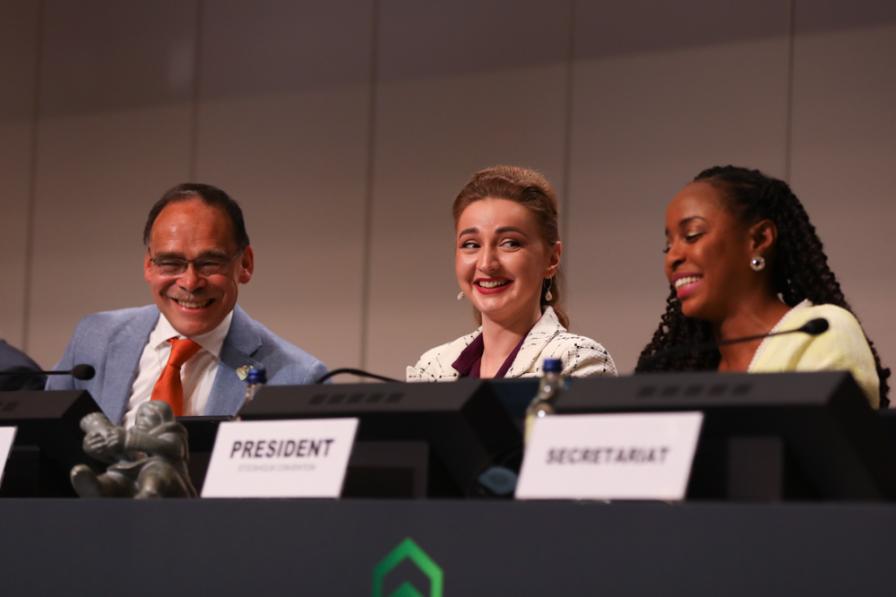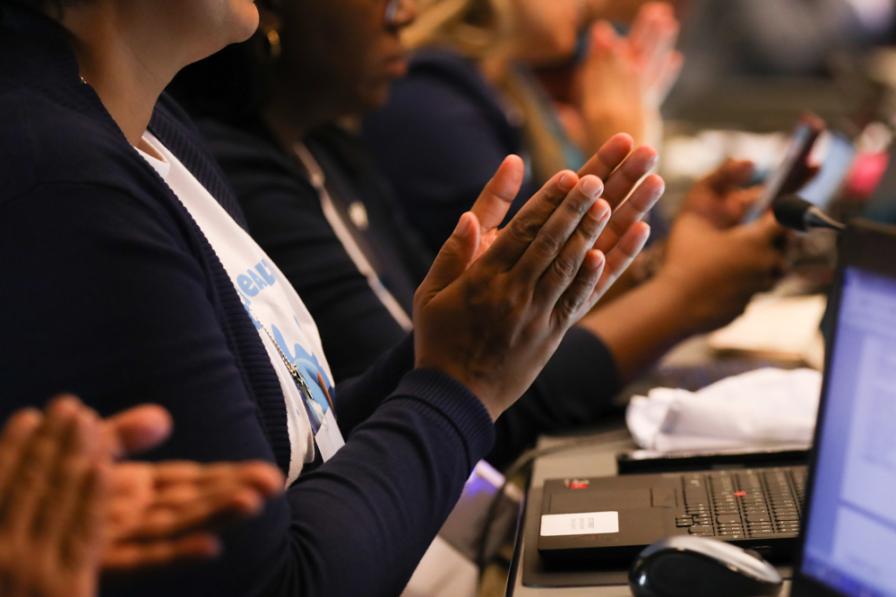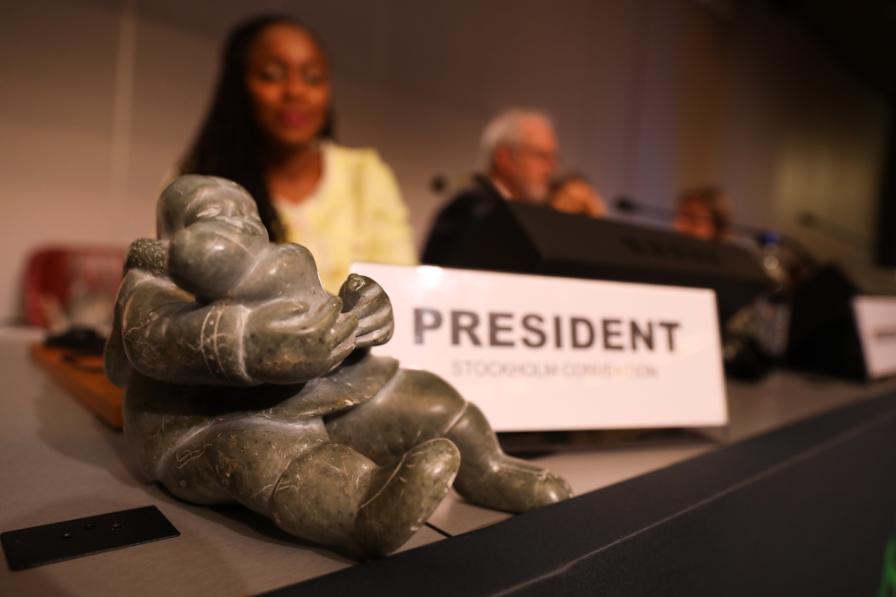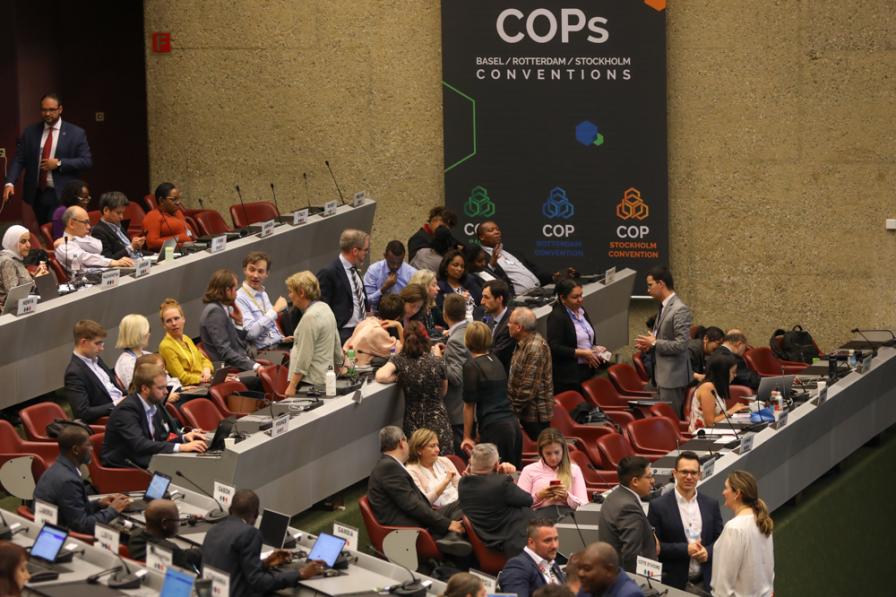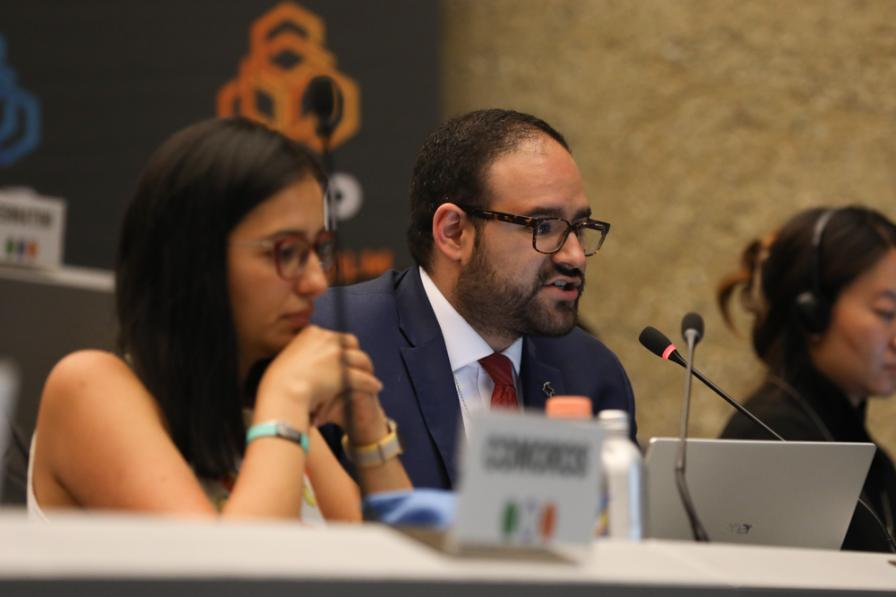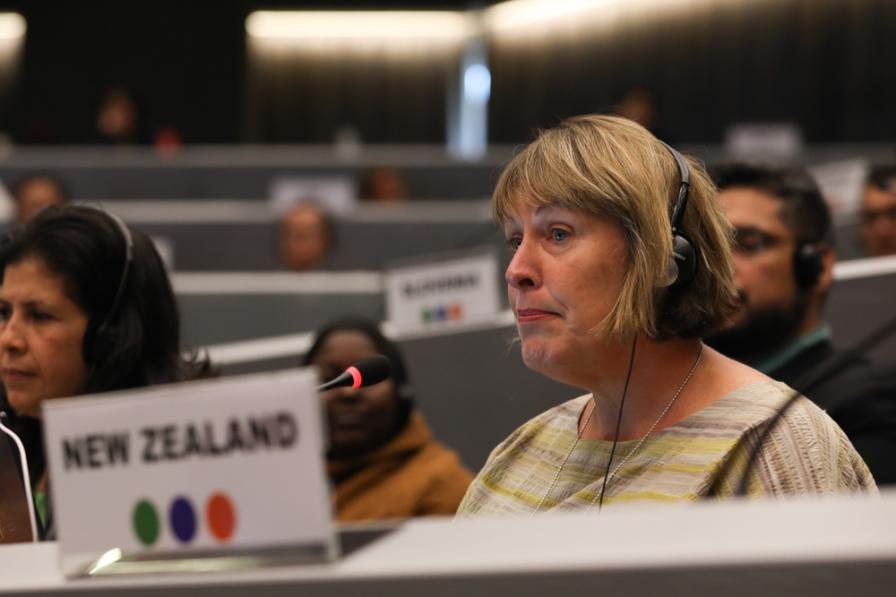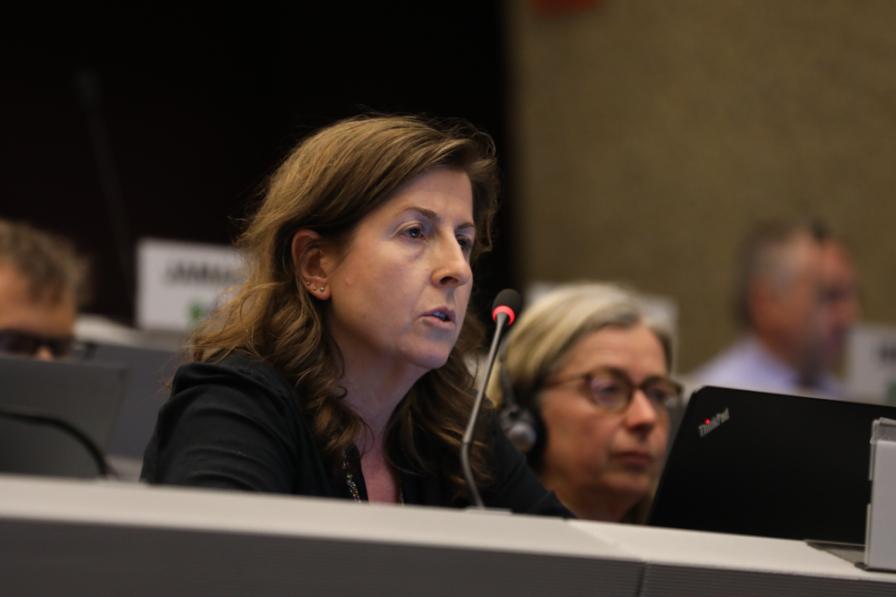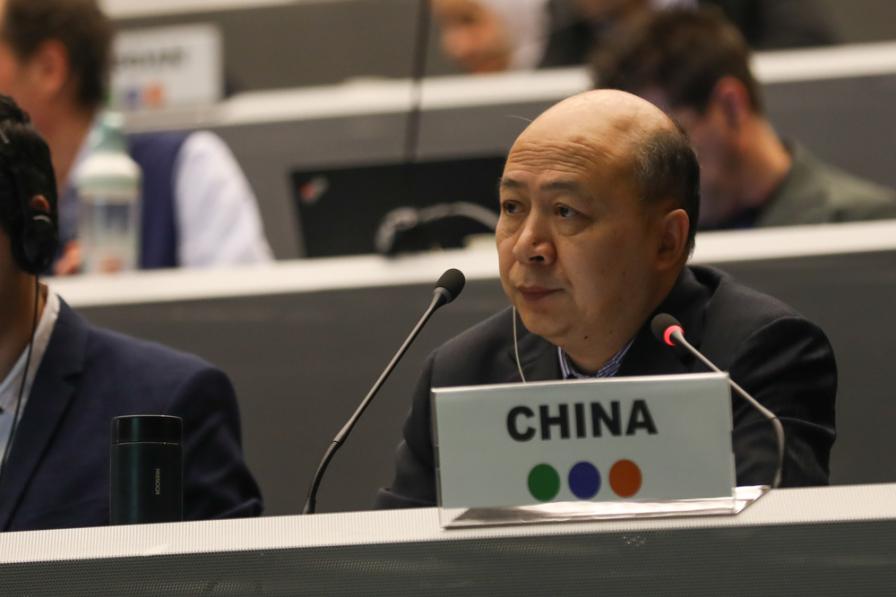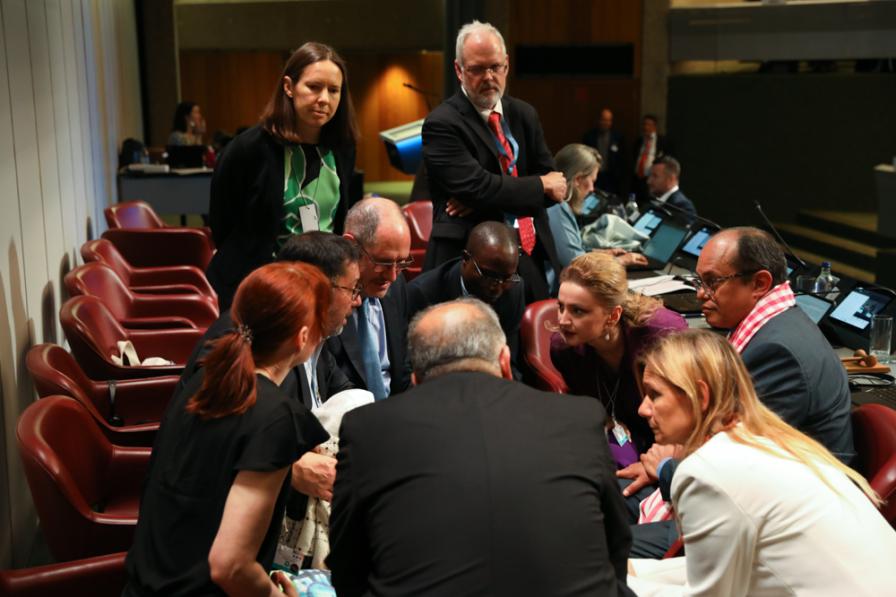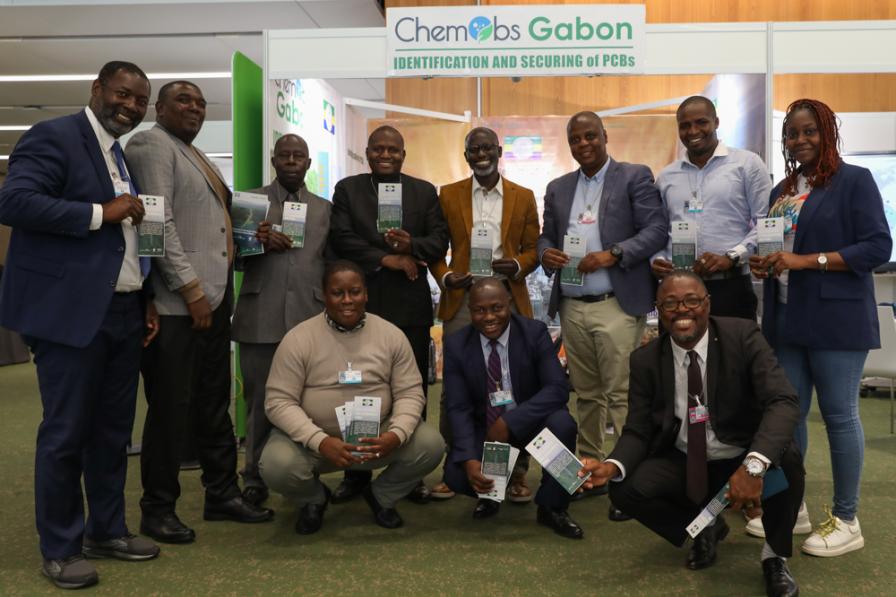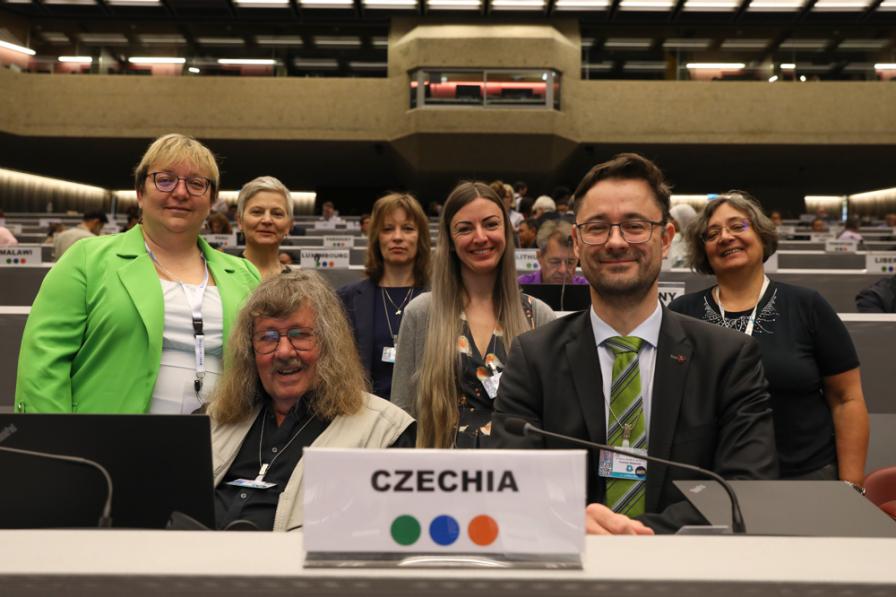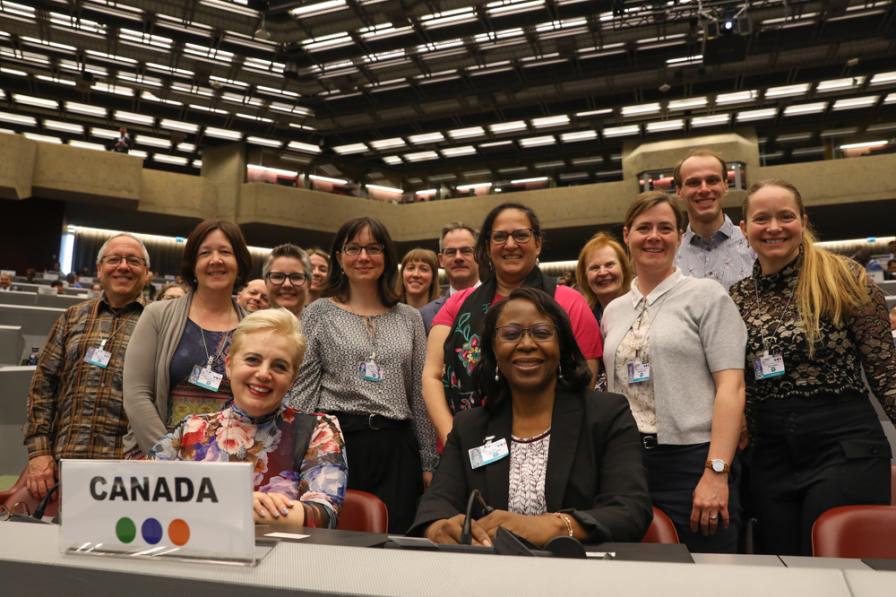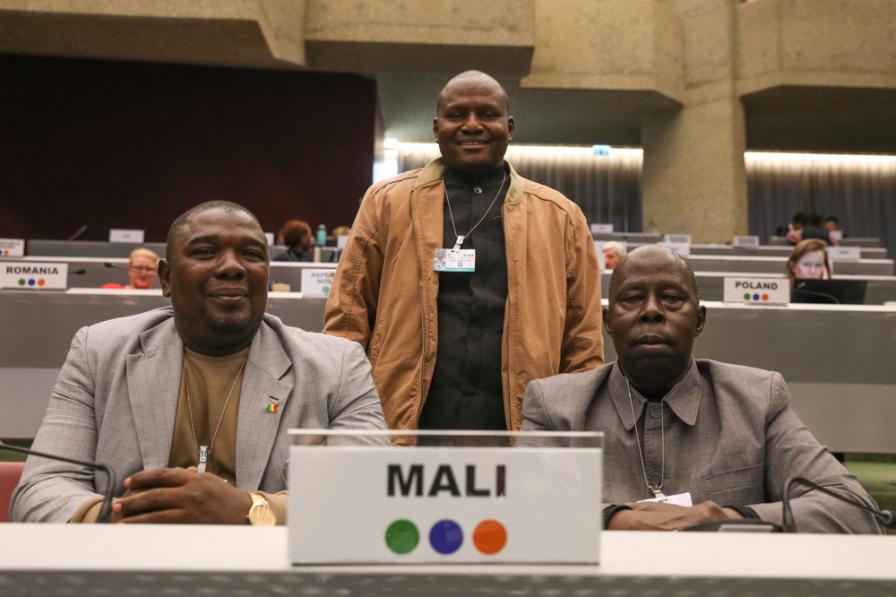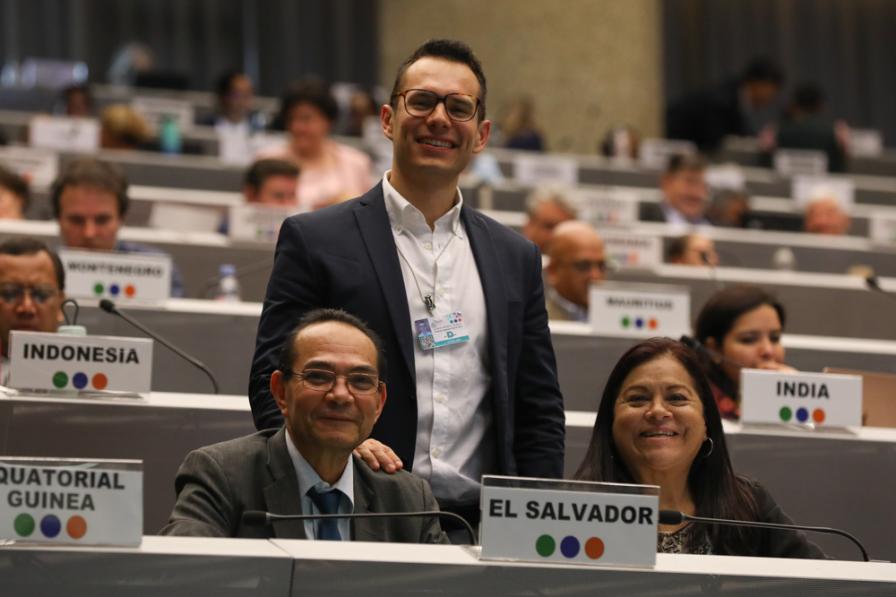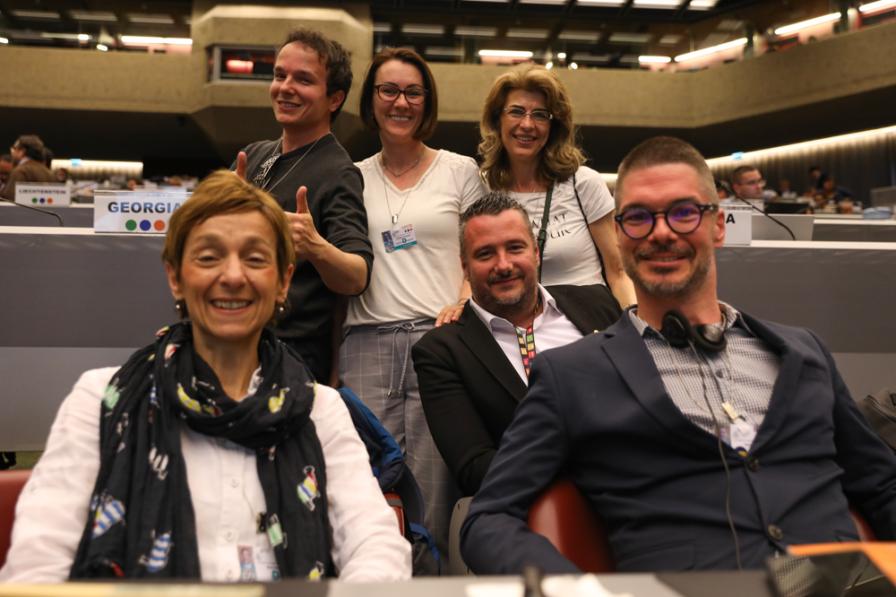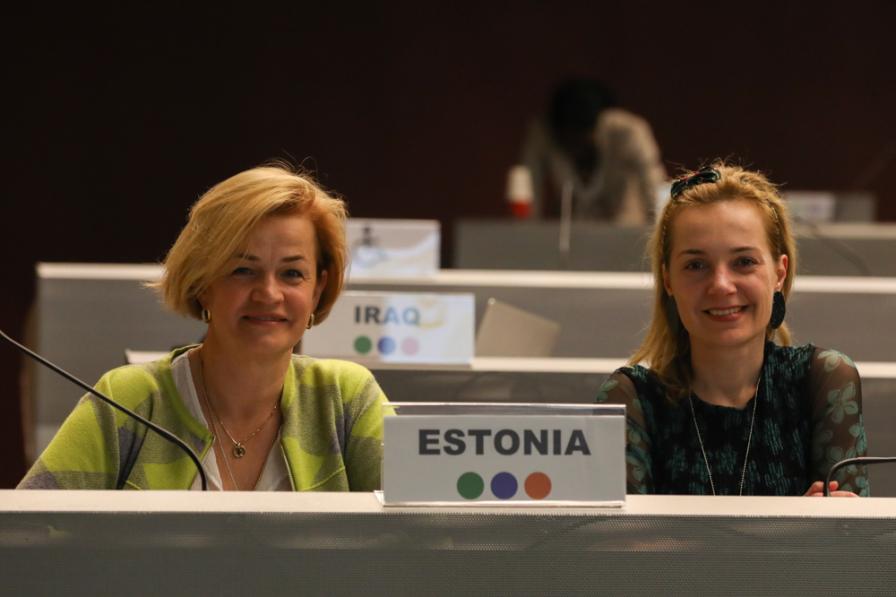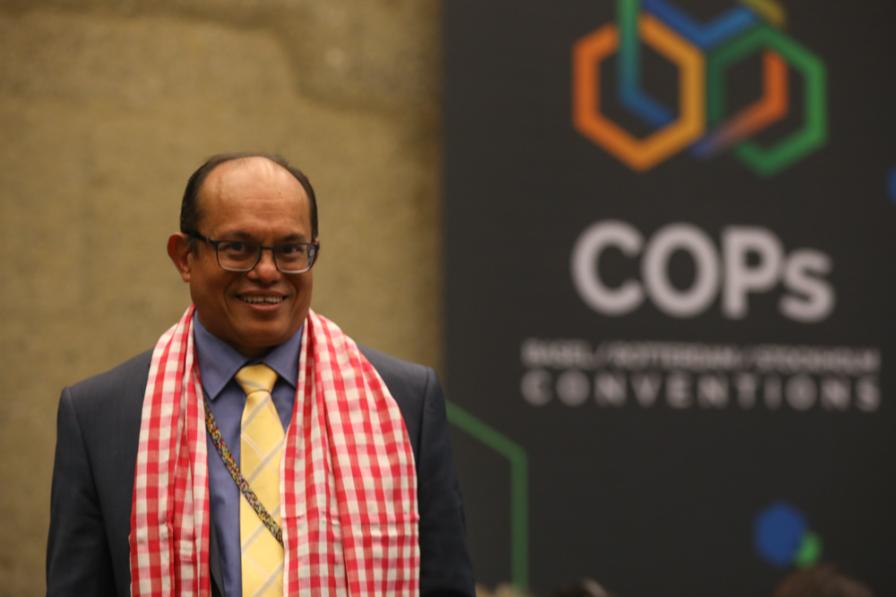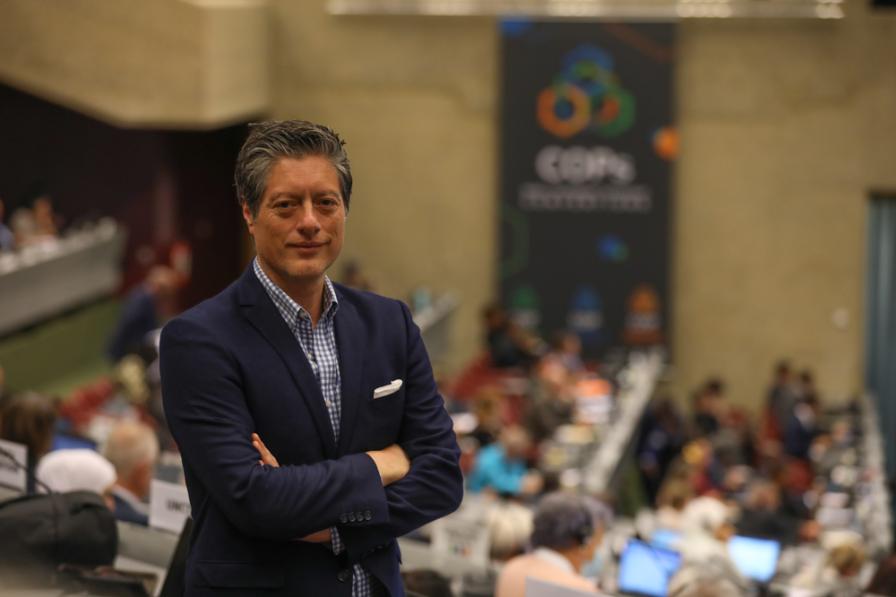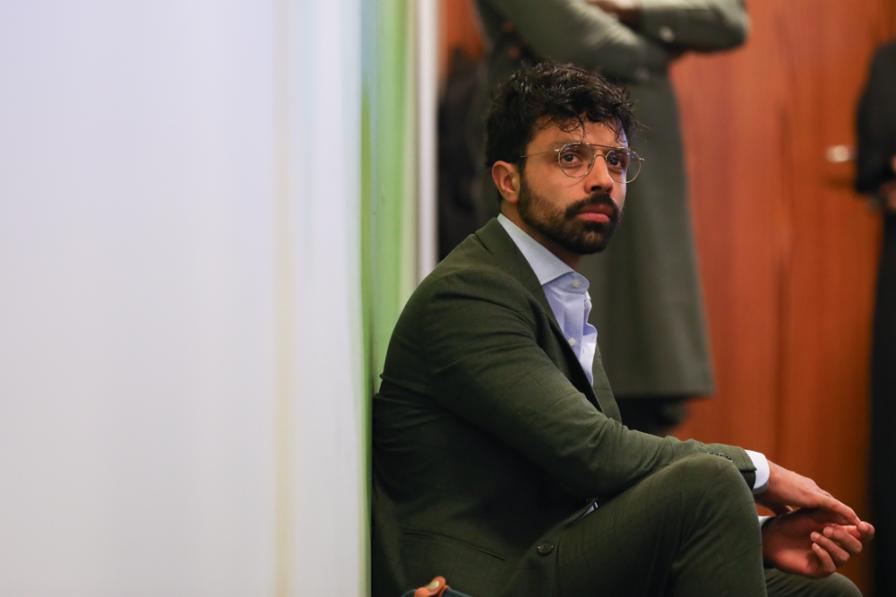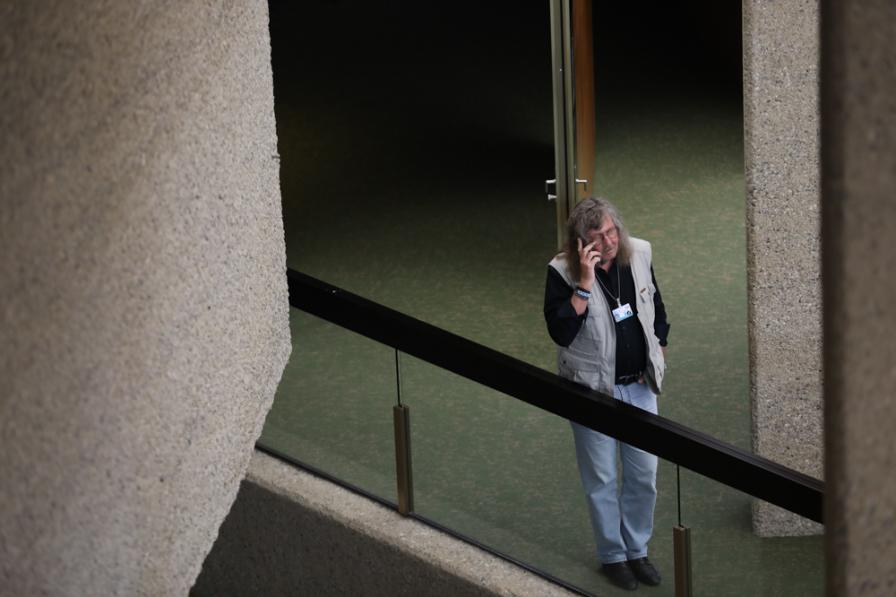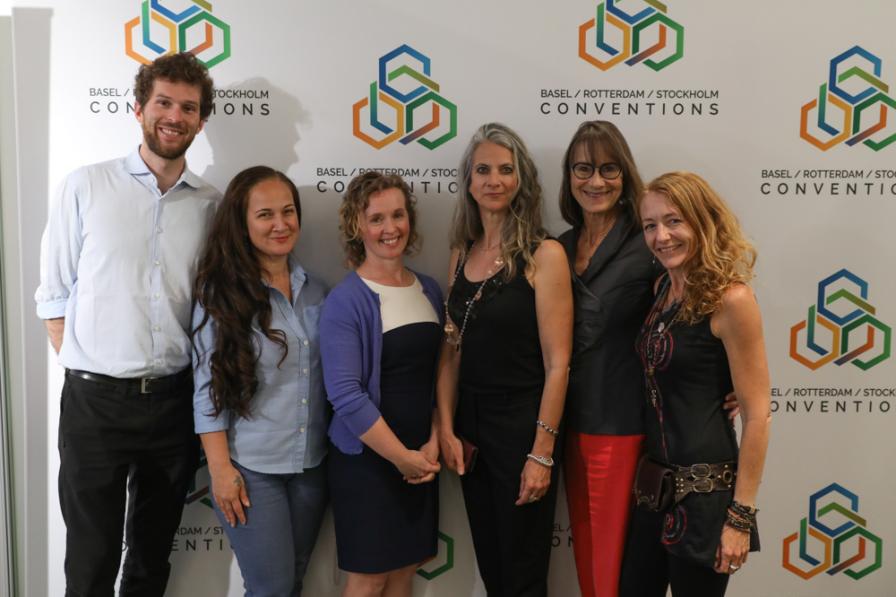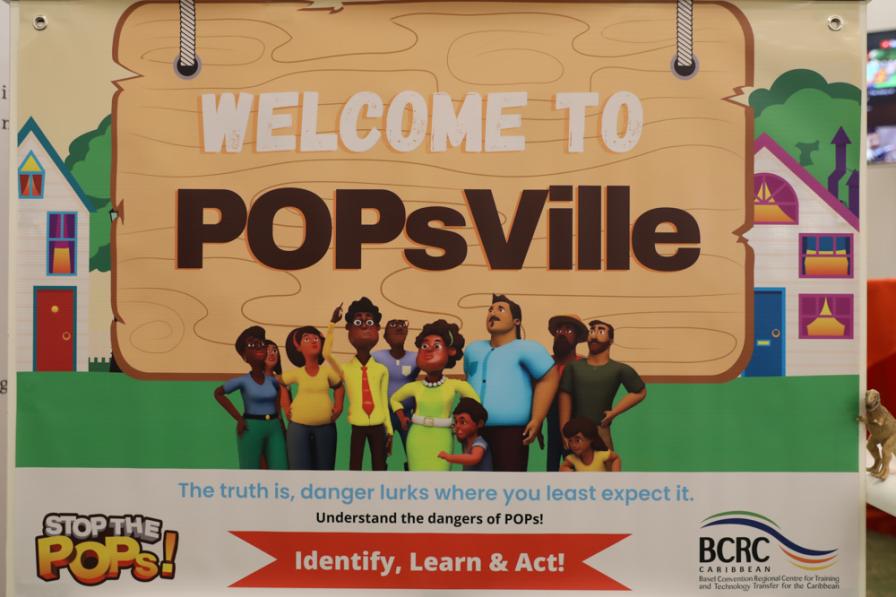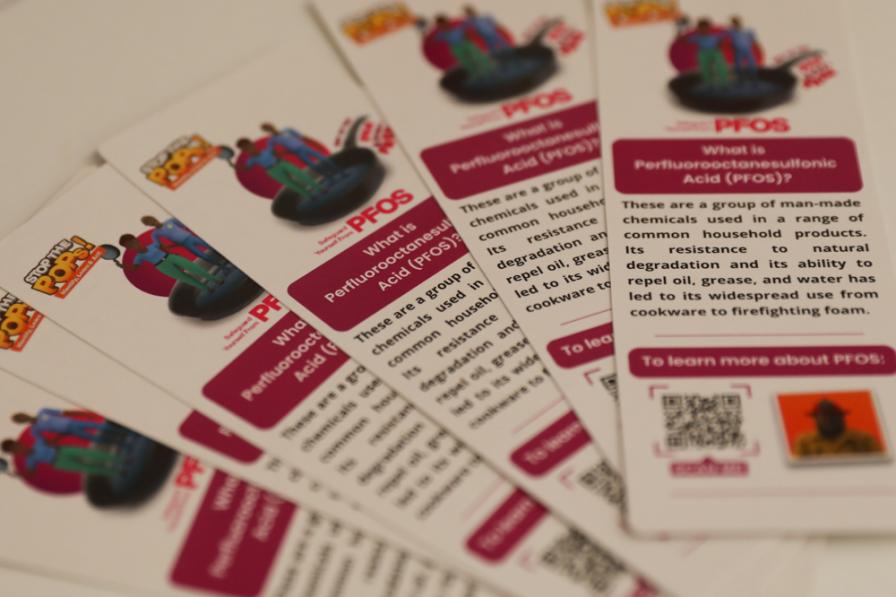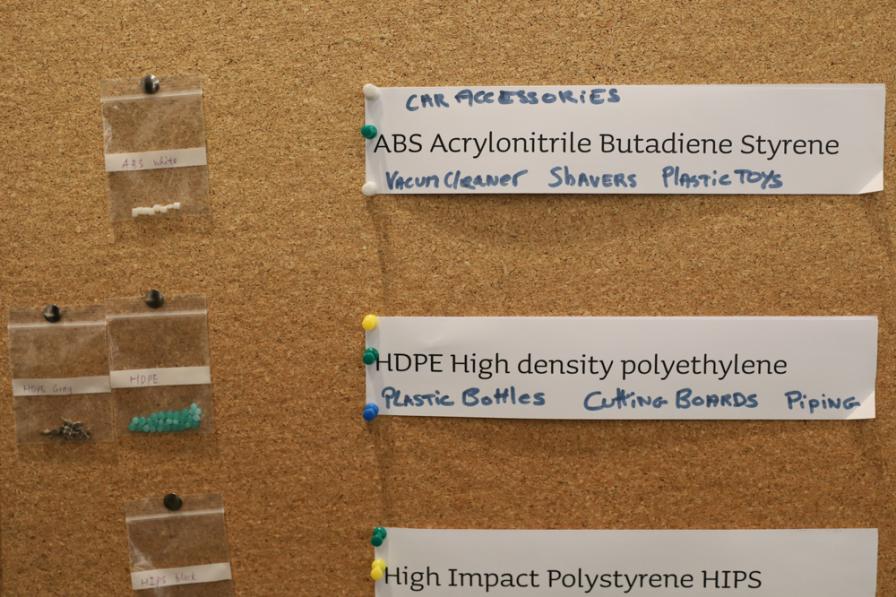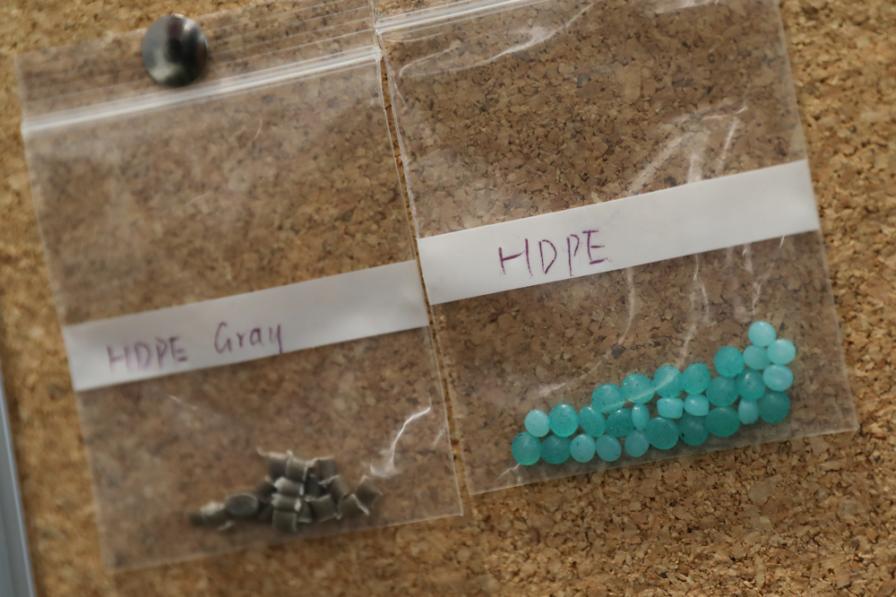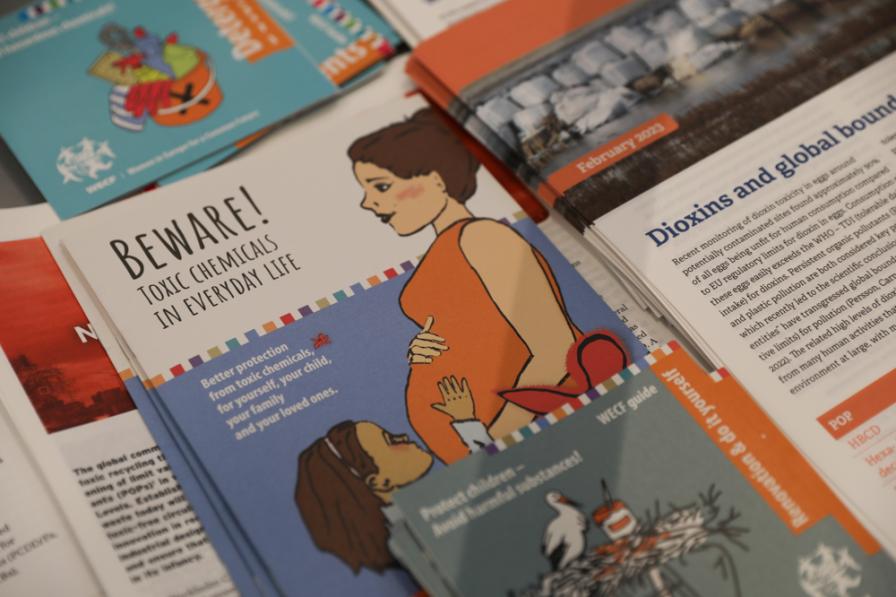Week one is in the history books. The Stockholm Convention adopted decisions to list new chemicals. This success allowed it to largely give way to the Basel and Rotterdam Conventions to delve further into their central issues.
Want to dig deeper? Read the full Earth Negotiations Bulletin daily report.
The Rotterdam Convention tried again to secure Co-Chairs to facilitate the discussions on a proposal to add a new Annex to the Convention. After a long debate, and sincere statements about the impartiality of Co-Chairs and the need to uphold the integrity of the Convention, two new Co-Chairs were chosen, and the contact group will convene on Sunday.
As the proponents of the proposal laid out in an informal Q&A session, this new Annex would “be an additional tool” for countries that would like a chemical to be part of the PIC procedure. It would, they clarified, only apply to those countries that ratify it, and it allows, as a last resort, a 3/4 majority vote.
The Stockholm Convention wrapped up most of its items. It agreed to:
- eliminate production and use of Dechlorane Plus (a flame retardant) and UV-328 (a UV filter used in plastics), with a few specific exemptions;
- take up new work on labelling POPs in stockpiles, products, and articles; and
- support countries through technical assistance.
Work on the compliance mechanism for the Stockholm Convention continued. Delegates were quietly optimistic that, finally, there might be agreement. But the negotiations are tentative, moving one step at a time, and allowing countries to consult. These discussions will continue next week.
The Basel Convention launched work, filling up any space in the schedule left open by the Stockholm Convention’s completions. This included discussions on how to improve the Convention’s priority informed consent (PIC) procedure. The Basel Convention’s PIC procedure requires information and consent on a shipment-by-shipment basis. Efforts are underway to help make import responses easier, including by using electronic approaches. But there are many other challenges that cause concerns for countries and operators. Discussions considered how to craft a way forward, which one party said “goes to the heart of the Convention.”
PCB Fair and Side Events
With the fair and its side events, polychlorinated biphenyl (PCB) is again a central issue on the side of the negotiations. One event focused on the potential of non-combustion destruction technologies, and another presented tools and guidance to help countries reach the 2025 and 2028 targets to eliminate PCB use in equipment and to ensure its environmentally sound management in waste liquids and contaminated equipment. After playing darts and spinning the wheel at the fair, PCB Fair participants could go to the PCB clinic and take part in the PCB cost-benefit Q&A.
The spotlight was also on plastic which remains a key issue for these three Conventions as it is for countries and communities. One event explored how ocean plastic could be part of a circular economy. Another focused on how development cooperation can support the Basel Convention’s plastic amendments, which make all plastic subject to its PIC procedure.
All ENB photos are free to use with attribution. For the 2023 BRS COPs, please use: Photo by IISD/ENB | Kiara Worth.
To receive free coverage of global environmental events delivered to your inbox, subscribe to the ENB Update newsletter.
